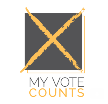The 6th set of party funding disclosures highlights continued weaknesses in the PPFA
2 December 2022
We welcome the timeous publication of the political party funding disclosures, which covers the period 1 July to 30 September 2022. During this quarter four parties, ActionSA, ANC, DA and the EFF, disclosed a cumulative amount of over R60 million. This is the highest amount of donations disclosed for a single quarter.
Concerningly, the Multi-Party Democracy Fund, which aims to strengthen our multi-party democracy has, again, not received any donations. We reiterate our call for donors who are interested in strengthening democracy donate to this Fund.
The published donations highlight the trend of a small elite funding our politics. The large donors to political parties in this quarter are repeat donors or linked to entities who have donated. Jessica Slack-Jell (R8 million), Victoria Freudenheim (R8 million), Martin Moshal
(R15 million) and Chancellor House (R7,5 million).
Weaknesses in the PPFA
This set of disclosures, again, expose a crucial weakness in the PPFA. The Act does not take into account that entities may be related so a director with multiple companies can donate through each of those companies or family and friends can donate money from the same source of wealth. Victoria Freudenheim and Jessica Slack-Jell are members of the Oppenheimer family, and together donated a total of R16 million to ActionSA. Their donation accounts for over 90% of ActionSA’s disclosed donations for the quarter! Jessica Slack-Jell also donated R2 million to the DA. While donations from the same source of wealth are not inherently indictive of wrong-doing, it can be a loophole exploited to circumvent the upper threshold limit of R15 million.
The DA disclosed receiving R15 million from Fynbos Kapitaal this quarter and R15 million from Fynbos Ekwitiet in the previous quarter. Both companies, with a cumulative donation of
R30 million so far this year, have Michiel Le Roux listed as their director.
Similarly, last year three companies with Patrice Motsepe as a director donated almost 70% of the ANC’s total disclosed funds of around R66 million.
These related donors have all, cumulatively, exceeded the R15 million annual cap that the PPFA places on donations.
The toxic relationship between money and politics
As we have pointed out before, money being used to influence politics has been a problem in South Africa even before 1994. Our history shows that wealthy individuals have often used money to buy influence or get access to the holders of political power. This undermines a core principle of our democracy, that the people must govern. While it remains our democratic right to support any political party we chose, including financially, we must guard against the undue influence that large donations of private money could bring. Donations to political parties are not criminal however we should have the opportunity to scrutinise all political activities, including donations, to ensure it is transparent and in the spirit of multi-party democracy.
The inclusion of the R15 million cap in the PPFA is an ineffective measure to limit the ability of wealthy individuals buying influence in our politics and undermining democracy. The ability of related donor entities to exploit the Act’s weakness and cumulatively exceed the cap is a crucial flaw in the legislation.
MVC’s work will focus on understanding the toxic relationship between money and politics, and campaign for a political party funding framework that enhances people’s power and removes the ability to buy influence.
We also await the IEC’s publication of the Party Funding Annual Report this year, which will give us further insight into the relationship between money and politics.
Issued by Sheilan Clarke, Head of Communications & Stakeholder Management, 2 December 2022

